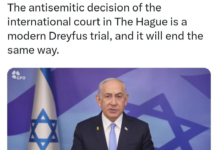MEND’s Siema Iqbal argues that until we feel equal sympathy for all lives lost in terrorist attacks it’s very difficult to see any hope of escaping from the “them” and “us” narrative that we’re stuck in.
A week ago I had a sinking feeling as the events in Paris unfolded. It was horrific and I would dare anyone to argue with that.
I waited for the usual reactions. Again Muslims flocked to the #NotInMyName hashtag; the condemnation from Muslim organisations began; and articles flew around trying to find the “Muslim hero” who could be shared in desperation to show not all Muslims were terrorists.
Radio stations discussed whether Muslims were integrated enough whilst British Muslims braced themselves for the inevitable rise in Islamophobic attacks that would occur over the coming days, weeks and months. And they did. Because, of course, all Muslims (except ISIS) will have to pay for what happened.
It doesn’t matter that the reality is that when all the victims have been named, many more Muslims will be victims than the actual terrorists.
I waited for the symbolic Facebook profile picture change, except this time Facebook made it even easier, just the click of a button. One click could temporarily show solidarity with the victims of the senseless attacks that had taken place in Paris.
However, the flag didn’t just show solidarity but, for some, demonstrated subliminal prejudice. It portrayed sympathy towards the lives lost in Paris but also represented the insignificance of those killed by ISIS in Beirut too. This may be inadvertent prejudice for some who are simply unaware of the attacks in Lebanon and Baghdad due to poor and biased media coverage.
Subscribe to our newsletter and stay updated on the latest news and updates from around the Muslim world!
But Facebook made people align with the “are you with them or us” philosophy by removing critical thinking. If as a Muslim you didn’t change your picture you were potentially an ISIS sympathiser.
Selective outrage
This #SelectiveOutrage was reinforced by the media both on screen and in print, bombarding us with images from Paris, shocking videos, interviews and analysis yet very little from other countries.
It is natural to care and feel sympathy for those who are similar to us. This is to be expected. We are all selective in our outrage. The question isn’t about outrage it is about whether one life is worth more than another. However, showing selective empathy potentially feeds the “us” and “them” ideology which plays right into the divide that ISIs wants to create between Muslims and Non-Muslims.
As a British Muslim I achieve nothing by trying to prove my worth as a citizen after every horrific attack except broadening this divide.
 David Cameron addressed the nation with his “Your values are our values, your pain is our pain, your fight is our fight” rhetoric and spoke of the values we shared with France.
David Cameron addressed the nation with his “Your values are our values, your pain is our pain, your fight is our fight” rhetoric and spoke of the values we shared with France.
Do we demonstrate “peaceful” values when we have politicians calling for bombing unknown targets with no plan for the aftermath and knowing it will kill innocent civilians? That is hypocrisy. And questioning it is not radicalism.
Do we show “tolerance” when we immediately blame the refugees, and allow the Daily Mail to portray them as rats crossing the border? We don’t wish to admit that these refugees are running from the same people that attacked Paris.
Do we believe in “liberty” when Muslims are too afraid to get on public transport for fear of being abused and blamed for the attacks in Paris?
Until we are honest with ourselves and recognise this prejudice and feel equal sympathy for ALL lives lost nothing will change. Until we treat others how we expect to be treated ourselves nothing will change. And that applies to those who tweeted #SelectiveOutrage too. Do they feel the same outrage about the genocide in Rwanda or is their outrage limited to Muslim victims of terrorism?
Defeating prejudice
So accepting the simplistic conclusion that ISIS is the enemy that must be defeated isn’t the answer as the problem isn’t that simple. Before ISIS there were many others, we need to look at the problem objectively and find holistic solutions.
Does the government use this division to fuel political outrage? Is it acceptable to kill “them” in order to protect “us.” As much as ISIS is real, it’s the treatment of ethnic minorities, making them feel like second class citizens, that is fuelling terrorism.
The terrorists in the Paris attacks were French and Belgium EU Nationals living in a country that has recently seen the rise of the right wing. In the UK introducing policies such as PREVENT which marginalises and disproportionately affects Muslim communities increases the divide.
Foreign policies which label loss of life as “collateral damage” because these lives are seen as less worthy, increases this division.
This divide is what drives potential “radicals” to join ISIS. If we fail to make our immigrants and ethnic minorities feel part of the society they live in, and empower them as active citizens, then we have widened the “us” and “them” division and allowed ISIS to win.
Until we defeat prejudice within ourselves and accept we are all to blame for the division we cannot defeat ISIS. The common enemy isn’t Islam, but it’s not just ISIS alone – it’s the enemy within, our own prejudice.




















